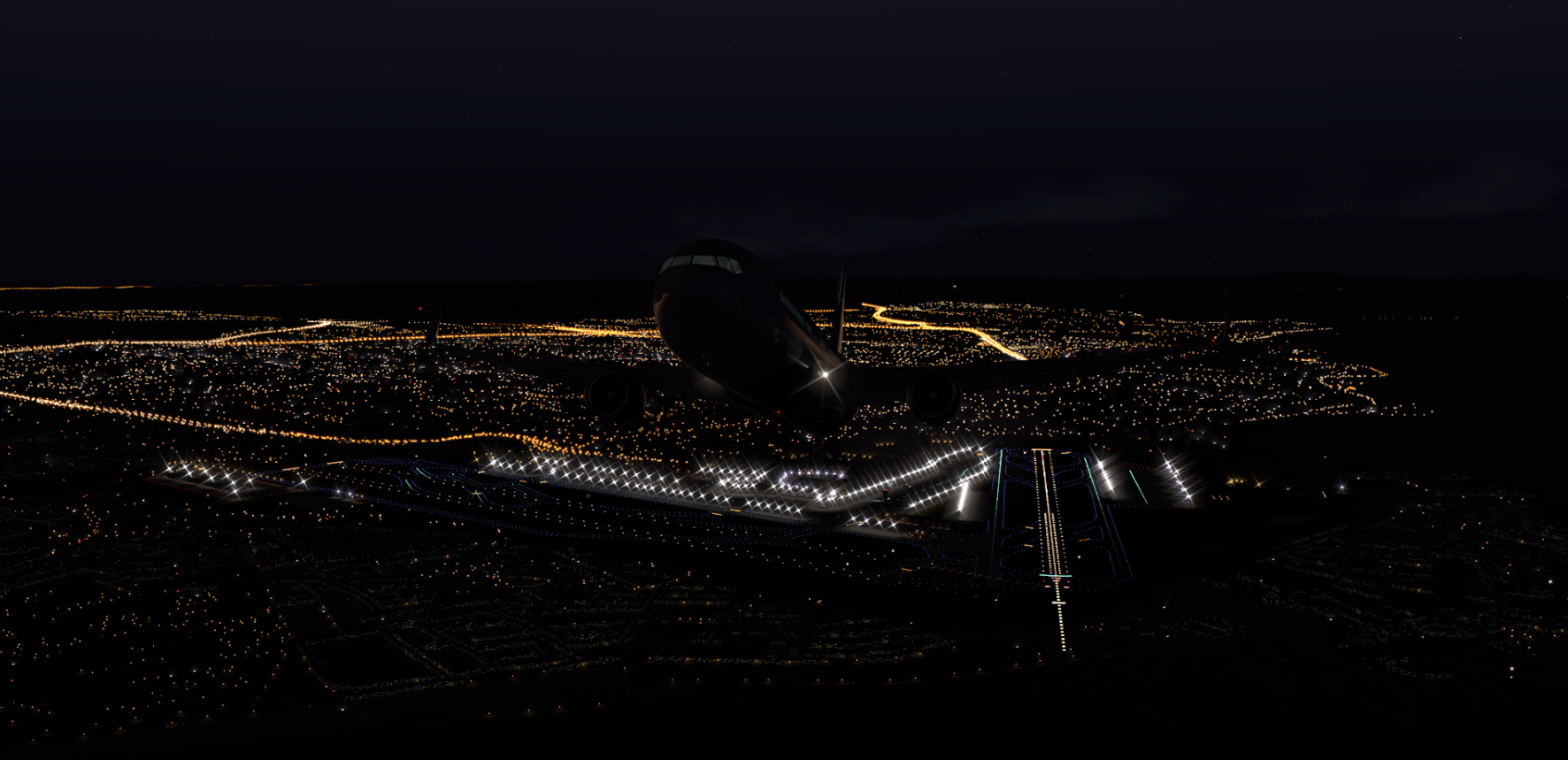
Everything posted by aeroniemi
-
POSCON ATC training model?
There's a balance between quality and quantity required, of course. In the UK, the OBS>S1 training takes people less than 6 weeks in most cases, dependent on their availablilty, and as a result we see that pretty much every airport that gets any planes is staffed with at least GND during the majority of the local "peak times"; I don't necessarily think it's possible to beat that. However, from APP up the story is slightly different; due in part to a lack of mentors, but also a whole set of other factors, the time taken for S2>S3 and S3>C1 is exponentially longer than lower ratings. It's not helped by the lack of mentors to run it, but it is ultimately as a result of the skills being required of these people being much more difficult to learn quickly. The UK, and other european FIRs are an exception in their high traffic levels and ATC staffing (the same isn't seen on IVAO, at least not in the same locations). VATSIM has a shortage of ATCOs in many areas of the globe, and at many times of day, but I think that's as a result of people who fly in different countries choosing IVAO over VATSIM. If you merge the ATCS coverage of both networks, you get a pretty good spread both spatially and temporally ; I don't think that's related to training though.
-
Abnormal Situations
Even controlling at Gatwick for quite some time, I've only seen 2-3 emergencies; I don't think people overusing them is really an issue. The ability for ATC to end any emergency, as found on VATSIM is important to manage that rate; if people know that they might have it denied, they're much less likley to do it intentionally.
-
POSCON ATC training model?
In the UK on vatsim, a division known for it's slow wait times; the time taken to go from OBS-S2 is now under 6 months; as a result of that we're seeing issues that haven't been seen before, at least not on this scale. People coming up to S2 aren't good enough at the "core skills" (how to deal with planes, how to be a controller, how to deal with high workload etc) because it's now moving too fast, and we're getting to a point where people going in for S3 training only have < 100 hours on the network, whereas before, due to the long waiting lists, this was never really an issue. There's definitely a balance required here. The issue becomes access to airports with a good amount of traffic, but the UK is lucky in that there are a lot of busy airports available. There's a balance between having people that are compitent enough to be controlling airports such as Gatwick and Heathrow, and making training run faster. To the students, it might seem like it takes ages, but I don't honestly see that we'd want to make that part go any faster. It would definitely be a good idea to have a computer-based training program for things like workload, but ultimately it can't substute for raw hours taking to planes. It's very hard to teach controllers how to deal with the unpredictability that comes with running a system dependent on people.
-
SCRAMBLE on Poscon?
I'm fairly confident it wouldn't be particularly helpful. It's certainly the last thing i'd think of wanting as an ACC controller, it'd just cause more chaos. On a note of this though, some kind of system where after n minutes of receiving a contact-me message (or equivalent) the pilot is disconnected automatically for failing to call in could be useful
-
January 2019 Development Update
It's great to see good progress being made
-
Major Airports
On VATSIM, at least from the point of view of the major airports, they mostly don't fall in line with the amount of traffic that you actually get - EGKK and EGCC have way more traffic than LHBP. It could definitely be done better with some thinking
-
Transoceanic HF calls?
VATSIM uses "SELCAL" on normal VHF frequencies, dealt with by the pilot client when a specific message (I think in the format "SELCAL DH-CG") But, that's not how it should work; I'd assume it is a goal to do it properly here
-
Radar Update Rates
A way to do that already exists in Euroscope, which the client is based on, so i'd assume it's the same or better
-
Tower view
It's possible certainly on VATSIM, using the euroscope proxy - I did it for CTP last year at LEBL
-
Update to Beta Release?
I don't think they mean it quite that specifically, but it'll be a while
-
Hope that there is no more vanishing traffic
I don't think it'd be worth the time and effort, as well as processing power to keep these planes "alive", but they could be made in times of low traffic into static planes for a while
-
follow the greens taxi-guidance system
Another thing on this category is ATCO control of stopbars at holding points, as well as runway lighting. From an X-Plane perspective, control of runway lighting is already possible with the right use of datarefs, but it'd need to be supported and shared by the network. new stopbars and even taxiway lights would be required to implement that or taxi routings, but given the rate of development and interest in this, if it's fairly easy to intergrate I think quite a few devs would take it on
-
New Idea, Ground Handling
Having jetways and maybe stairs i think would have little overhead, and would be very cool
- Idea of Eurocontrol on POSCON
-
Abnormal Situations
Indeed, from my experience, when things go wrong, be it because I messed up my fuel pump configuration or because someone was trying to play angry birds with my engines, this is the best time that can be had, if both the pilot and controller are understanding of the situation (it's happened quite a few times to me, sometimes i'll just press the reset button on the failures, or handle it as is possible - generally dependent on my understanding of controller performance)
- Idea of Eurocontrol on POSCON
-
Idea of Eurocontrol on POSCON
The best thing that could be done in the case of CTP and similar is to make it so that any pilot to "book" or rather simply state to the computer when they'd like to fly, then let it actively define slots in real time rather than saying that planes should depart at a set time defined weeks before (or at strange hours the day before) - that'd allow for much better real time and long term planning than is ever possible from a defined slot system
-
Why cant i Join a vARTCC?
At present there's o planes to control, because the network isn't live yet. As stated in some of the pinned posts, "live controlling" is about 6 months ahead - better get the time machine out
- Tours / Awards system
-
Drones
I do like easter eggs also
-
COMM Speakers
In the case of X-Plane it's not very much effort to do that even with XSB; just need a small lua script (or it could be included to the plane, as in the case of a few) to define the required datarefs. No clue about P3D though
-
Drones
I really love drones, flown quite a few from tiny to pretty big, don't quite know why people find it so hard to stay out of the way of planes though.
-
Drones
I wonder if we'll have to contend with drones on the approach path to the airports, like some fields contend with regularlly
-
Controller Client Updates
The issues that most facilities experience during events is due to: Event-level traffic for lots of airports is rare, so controllers don't get much practice in high-workload enviroments There's not much "software support" for high traffic load: If you look at VATSIM's cross the pond event, the real world system would struggle or have broken down by the point of over 1000 planes crossing within a few hours from and to a few airports Real-world ATC use CPDLC, and have cross border planning capabilities (in my view by far the most important factor) Real facilities impliment off block times based on predicted delays along the whole route, which isn't really feasable in a situation where people can just show up and fly something
-
Controller Client Updates
I think a global academy might be a bit difficult to do, because procedures are very different in different countries. In reality, the people doing their aTC training in the UK learn the European (Eurocontrol) procedures first, then the modifications used for the UK. So it might be possible to have like a EUROCONTROL/FAA/ICAO set of training, and then specialise later


